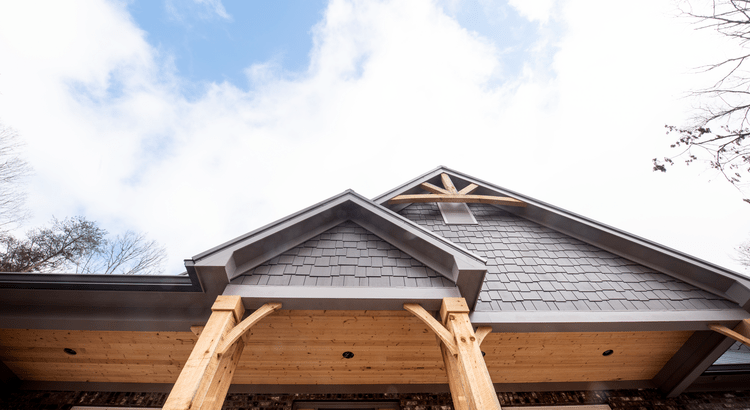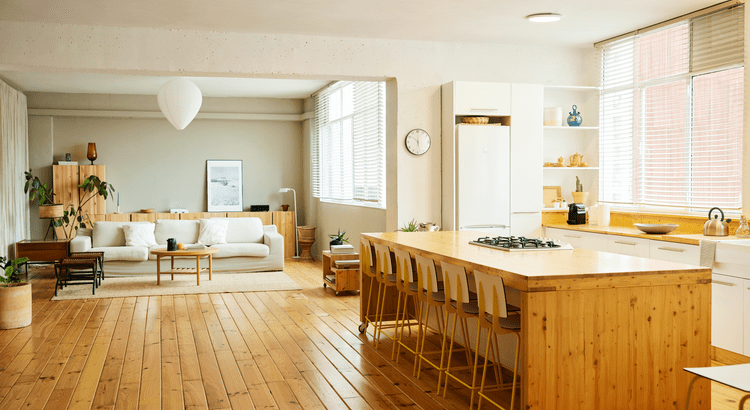Should You Sell Your Home or Rent It Out? Key Considerations for Homeowners

When it’s time to move, one of the biggest decisions you’ll face is whether to sell your home or rent it out. With more homeowners weighing their options, the question has become even more important. Recent data from Zillow reveals that two-thirds of sellers considered renting their home before listing, with nearly a third seriously considering it. This marks a significant increase from just a few years ago, when fewer than half of homeowners explored this option.
Whether you're thinking about selling your home to fund your next purchase or holding onto it as a rental to build long-term wealth, there’s a lot to consider. Let’s break down the key factors to help you decide which path is right for you.
Is Your Home a Good Fit for Renting?
Before jumping into the rental business, ask yourself: Is your home suitable to be a rental property? Some homes naturally make better rentals than others. For example, if you’re relocating far away, managing a property from a distance can quickly become a headache. You’ll need to think about ongoing maintenance, managing tenants, and whether your neighborhood is ideal for renters.
Other important factors to weigh include the condition of your home and its potential for appreciation. If your house needs significant repairs or if it’s in an area where demand for rental properties is low, renting may not be a viable option.
Are You Ready for the Responsibilities of Being a Landlord?
Being a landlord isn’t all about collecting rent checks—there’s much more involved. If you're considering renting your home, it's essential to understand the realities of property management. Are you prepared for late-night maintenance calls or emergency repairs? From leaky pipes to malfunctioning HVAC systems, being a landlord often means handling issues that arise at the most inconvenient times.
Moreover, there’s the risk of tenants who fail to pay rent, break their lease, or cause property damage. Redfin highlights the importance of having a financial cushion for these unexpected expenses: “Landlords have to fix things like broken pipes, defunct HVAC systems, and structural damage. If you don’t have a few thousand dollars saved for repairs, you could find yourself in a financial bind.”
If these responsibilities sound overwhelming, selling might be a more practical option. Keep in mind that renting a home is a long-term commitment, and it’s important to realistically assess whether you’re ready for it.
What Are the Hidden Costs of Renting?
While rental properties are often seen as a source of passive income, they come with their own set of hidden costs. Before deciding to rent, it’s important to fully understand the financial obligations involved.
Mortgage and Property Taxes
Even as a landlord, you’ll still be responsible for paying the mortgage and property taxes. In some cases, rent may not fully cover these expenses, and you’ll need to make up the difference.
Insurance
Landlord insurance is necessary to protect you from damages or injuries that may occur on the property. However, it typically costs about 25% more than standard homeowners insurance, so it’s important to factor this into your budget.
Maintenance and Repairs
You’ll also need to set aside money for maintenance. As a general rule, budget at least 1% of your home’s value annually for upkeep. If your home is older, this percentage could be higher. From routine maintenance like lawn care to emergency repairs, these costs can add up quickly.
Tenant-Related Expenses
Finding the right tenants is another cost to consider. You’ll likely need to advertise the property, which could incur marketing expenses. Additionally, performing background checks and screening tenants can involve additional fees.
Vacancies
If your rental property sits empty for a period of time, you'll lose out on rental income. While you’re searching for new tenants, you'll still need to cover the mortgage and other ongoing costs. This can be especially challenging in areas with high vacancy rates.
Management and HOA Fees
If managing the property feels overwhelming, hiring a property manager can ease the burden. However, this comes with a cost, typically around 10% of the monthly rent. Additionally, if your property is part of a homeowners association (HOA), you’ll need to account for HOA fees as well.
Weighing the Pros and Cons: Should You Sell or Rent?
Ultimately, the decision to sell or rent out your home comes down to your financial goals, your lifestyle, and how much time and effort you’re willing to invest. Let’s break it down:
Selling Your Home
- Pros:
- Quick, straightforward process.
- Cash in hand for your next purchase.
- No ongoing responsibilities or costs associated with being a landlord.
- Cons:
- You’ll lose the potential for long-term income from renting.
- Depending on market conditions, you may not sell at the ideal price.
- You’ll need to find a new home to buy or rent.
Renting Out Your Home
- Pros:
- Generate steady, long-term rental income.
- Potential for property appreciation and tax benefits.
- Maintain an asset that could increase in value over time.
- Cons:
- Ongoing responsibilities, including maintenance and tenant management.
- Risk of vacancies or late payments.
- Additional costs, such as insurance, property management, and repairs.
The Bottom Line – What’s Right for You?
There’s no one-size-fits-all answer when it comes to deciding whether to sell or rent your home. If you’re looking for a clean break and the ability to use the proceeds of your sale for your next chapter, selling might be the way to go. On the other hand, if you’re interested in building long-term wealth through rental income and can handle the responsibilities that come with being a landlord, renting could be a profitable option.
Before making your decision, it’s crucial to think about your lifestyle, your financial goals, and your ability to handle the ongoing responsibilities of managing a rental property. If you’re unsure which option is best for you, working with a real estate professional can provide valuable insights and help you make an informed choice that aligns with your objectives.
Don’t hesitate to reach out to a trusted advisor who can guide you through the decision-making process and help you navigate the next steps in your real estate journey. Whether you decide to sell or rent, the right choice will depend on what’s best for your future.
Recent Posts










GET MORE INFORMATION
